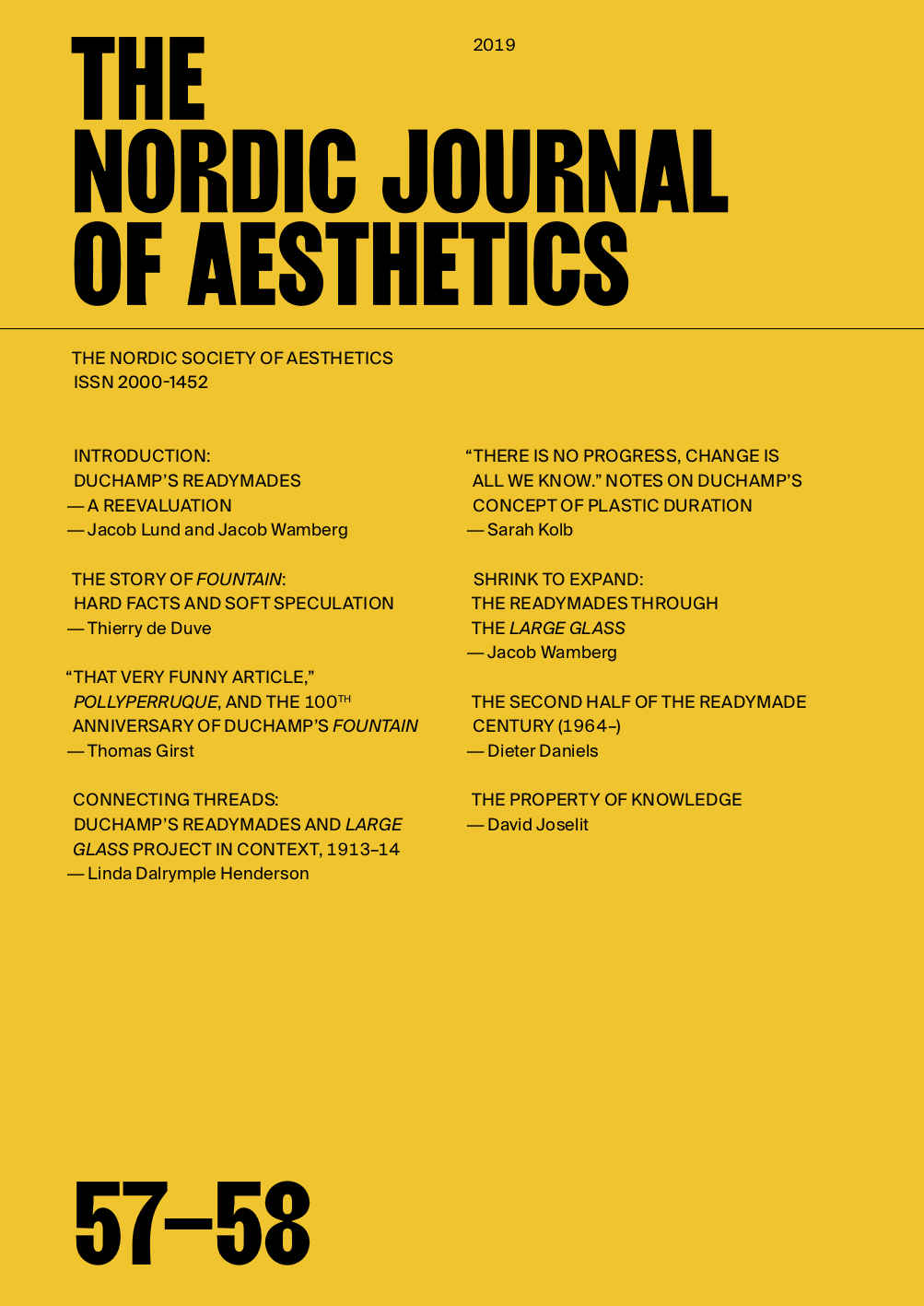“THERE IS NO PROGRESS, CHANGE IS ALL WE KNOW.” NOTES ON DUCHAMP’S CONCEPT OF PLASTIC DURATION
DOI:
https://doi.org/10.7146/nja.v28i57-58.114851Keywords:
Marcel Duchamp, Henri Bergson, ready-mades, writing experiments, philosophy of time and space, intuition, humorAbstract
Henri Bergson is generally recognized as one of the most influential philosophers in the history of historical avant-gardism. Nevertheless, it has been widely neglected that Bergson’s philosophy also played a crucial role for the radically new concept of art that Marcel Duchamp developed based on his critical attitude towards the avant-gardes. First and foremost, this is apparent in view of Duchamp’s paintings The Passage from Virgin to Bride and Bride of 1912, as they both feature an idea of transition laying the foundation for his Large Glass and associated works. But there is also another cross-connection that one wouldn’t expect at the first glance. As this paper argues, Duchamp paradoxically also draws on Bergson’s ideas with his ready-mades, pointing to that productive interplay of intuition and intellect, which Bergson defined as a vital source for any kind of imagination and agency. Thus, Duchamp’s idea of choosing his ready-mades in terms of a “rendezvous with fate,” which he also reflected in his writing experiments The and Rendezvous, can be closely linked to his declared interest in Bergson’s “primacy of change,” leading him to explore the idea of “plastic duration.”
Downloads
Published
How to Cite
Issue
Section
License
Authors who publish with this journal agree to the following terms:
- Authors retain copyright and grant the journal right of first publication with the work simultaneously licensed under a Creative Commons Attribution License that allows others to share the work with an acknowledgement of the work's authorship and initial publication in this journal.
- Authors are able to enter into separate, additional contractual arrangements for the non-exclusive distribution of the journal's published version of the work (e.g., post it to an institutional repository or publish it in a book), with an acknowledgement of its initial publication in this journal.
- Authors are permitted and encouraged to post their work online (e.g., in institutional repositories or on their website) prior to and during the submission process, as it can lead to productive exchanges, as well as earlier and greater citation of published work (See The Effect of Open Access).




